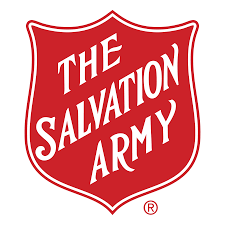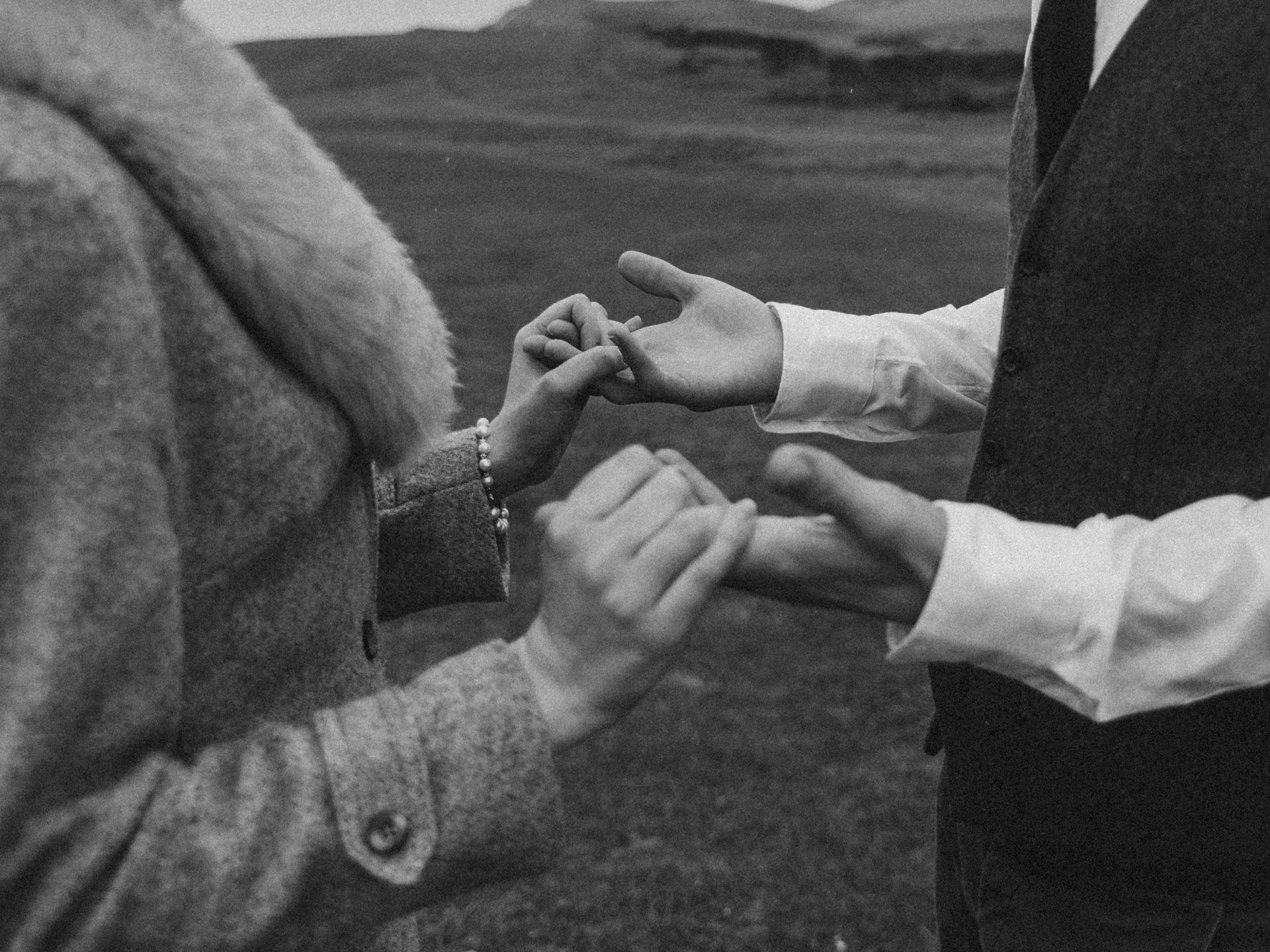God the Provider
Ruth 2

What we see in chapter 2 is a “chance” encounter by a man and a woman that begins to grow the seeds of romance in their lives. The couple are complete opposites – they often say opposites attract. He's rich, she's poor. He's Jewish, she's not. She's a Gentile. She's from Moab. He's the owner of the field. She's a worker in the field. He's single. She's widowed. But in all the chaos of Ruth’s life, God is up to something.
Ruth 2: 1-3, “Now Naomi had a relative on her husband’s side, a man of standing from the clan of Elimelek, whose name was Boaz. And Ruth the Moabite said to Naomi, ‘Let me go to the fields and pick up the leftover grain behind anyone in whose eyes I find favour.’ Naomi said to her, ‘Go ahead, my daughter.’ 3 So she went out, entered a field and began to glean behind the harvesters. As it turned out, she was working in a field belonging to Boaz, who was from the clan of Elimelek."
What Ruth was doing was known as gleaning and it was an ancient means of God taking care of the poor. In Leviticus 23 there’s a command that when you reap your fields, you go through your fields once. You don't go through them again. You leave some of the fruit on the vine, some of the fruit on the tree, some of the wheat in the stalk. You go through it once, and you leave. And they left up to, in most cases, 25% of the crop in the field. And that was so the fatherless, the widow, the poor of the land, the stranger of the land could come in and take it-- could pick it. So it wasn't like, we'll collect it and give it to you, so there's no labour involved. If you're a rich landowner, you leave some of it, so they can come in and pick it later. So that's the gleaning of the field.
So she's out gleaning in the fields in Bethlehem. Ruth 2:4, "Just then Boaz arrived from Bethlehem and greeted the harvesters, ‘The Lord be with you!’ ‘The Lord bless you!’ they answered." This is not a work crew I have ever come across in my own experience! If you go to a construction site today or tomorrow and listen to the language at the construction site or a place where there's farming like this, you're probably not going to hear this conversation. But immediately, we are struck with the personality of Boaz. There is a generosity about his personality. And he's a spiritual man-- a godly man.
Ruth 2: 5-8, “Boaz asked the overseer of his harvesters, ‘Who does that young woman belong to?’ The overseer replied, ‘She is the Moabite who came back from Moab with Naomi. She said, “Please let me glean and gather among the sheaves behind the harvesters.” She came into the field and has remained here from morning till now, except for a short rest in the shelter.’ So Boaz said to Ruth, ‘My daughter, listen to me. Don’t go and glean in another field and don’t go away from here. Stay here with the women who work for me." The law said she could go into any field she wants.
I love that Ruth says ‘please just let me glean and gather food’. Ruth has had a difficult life. At this point she has full responsibility for her widowed mother in law. She was married for ten years, but without children and is now widowed. She’s travelled away from the safety of her own family and language….too far away to ever go back. She’s stuck here in Bethlehem. I honestly don’t think that Ruth has a plan, I don’t think she knows what to do, which fork of the road to take. She just can’t look too far ahead. And so she just does the next right thing.
I think there’s so much wisdom and integrity in this. A writer, Emily Freeman says “Doing the next right thing is good advice, but it didn’t sink in for me fully until I started noticing it in the Gospels.
So often, right after Jesus performed a miracle, he gave a simple next thing to do. To the leper, he said to tell no one, “But go and show yourself to the priest” (Luke 5:14). To the paralysed man, he said, “Get up, pick up your stretcher, and go home” (v. 24). To Jairus and his wife, after raising their daughter from the dead, when he had their full and complete attention, and when chances were good he could get them to swear their lives away for his sake, he did not perform a lecture about dedicating their lives to him or about what grand plans he had for their girl now that she was alive. Instead, he told them to give her something to eat (8:55). After raising their daughter from the dead, the one thing Jesus told them in the face of their rapt attention was to go make lunch.
At first glance, that seems like a waste of a captive audience. Rather than a life plan, a clear vision, or a five-year list of goals, the leper, the paralytic, and Jairus and his wife were given clear instructions by Jesus about what to do next—and only next. Perhaps he knew something about our addiction to clarity. He knew if we could somehow wrangle a five-year plan out of him, we would take it and be on our merry way”.
We want greater clarity, but what we desperately need is greater trust. We often don’t have the big picture, but that means we have to trust our gracious God all the more. But He will guide us, through the power of the Holy Spirit, to do the next right thing. Not a necessarily a big thing. But the right thing.
The AA Big Book says: “We earnestly pray for the right ideal, for guidance in each questionable situation, for sanity, and for the strength to do the right thing.”
Back to the story. Boaz says, no need to go into any other field. Ruth 2: 9 "Watch the field where the men are harvesting, and follow along after the women. I have told the men not to lay a hand on you. And whenever you are thirsty, go and get a drink from the water jars the men have filled.’"
I also love this. Boaz steps up and says ‘there’s no sexual harassment here. Not on my watch. Not here. Not ever.’ He said, I've already instructed the young men, don’t you dare touch her. She was at the bottom of the pecking order. She’s not Jewish, she’s a woman, a widow, and a foreigner. She would have been considered fair game for any man.
But Boaz, steps up and takes action. He respects her and brings dignity to her desperate situation. But more than that, he actually does something. He speaks up for Ruth who has no power and no voice in this situation.
Ruth 2: 10-13, "At this, she bowed down with her face to the ground. She asked him, ‘Why have I found such favour in your eyes that you notice me – a foreigner?’ Boaz replied, ‘I’ve been told all about what you have done for your mother-in-law since the death of your husband – how you left your father and mother and your homeland and came to live with a people you did not know before. May the Lord repay you for what you have done. May you be richly rewarded by the Lord, the God of Israel, under whose wings you have come to take refuge.’ ‘May I continue to find favour in your eyes, my lord,’ she said. ‘You have put me at ease by speaking kindly to your servant – though I do not have the standing of one of your servants.’"
So he had heard of her commitment to her mother-in-law. Your people will be my people. Your God will be my God. Sometimes we think the commitments we make go unnoticed but there are always people who notice.
Ruth 2:14-15, "At mealtime Boaz said to her, ‘Come over here. Have some bread and dip it in the wine vinegar.’ When she sat down with the harvesters, he offered her some roasted grain. She ate all she wanted and had some left over. As she got up to glean, Boaz gave orders to his men, ‘Let her gather among the sheaves and don’t reprimand her." Let her take whatever she wants, whatever she finds.
Also-- get this, "Even pull out some stalks for her from the bundles" that you guys are carrying, you reapers, "and leave them for her to pick up, and don’t rebuke her.’ So Ruth gleaned in the field until evening." (Ruth 2:16-17).
This is interesting. Boaz is providing for Ruth and Naomi, but he’s not just giving a handout. Ruth is still working hard and gathering food, but Boaz has out all the conditions in place for her to be successful. Honestly, there’s so much to like about this story. She has the dignity of providing for herself, and yet, Boaz takes away any barriers that would prevent her doing well.
I think about the racism and prejudice she would have faced and Boaz looks beyond that. I do think that if we are not extending kindness and generosity to assist people to thrive, we’ve lost the plot.
I love that we have young mum’s come to Tarrawanna Playgroup with Tammy and they find the resources and support to parent well.
I love it that kids come to kids in the kitchen and we do everything to help them feel confident in the kitchen, to see them succeed.
I love it that young people come to the youth group and find a group of people to help them navigate the bumpy road of adolescence.
And I love it that when someone new, unknown, foreign to us, comes to church, that someone will sit with them, extend grace, show kindness, so they can feel at home here and thrive spiritually.
Ruth 2: 18-23, “She carried it back to town, and her mother-in-law saw how much she had gathered. Ruth also brought out and gave her what she had left over after she had eaten enough. Her mother-in-law asked her, ‘Where did you glean today? Where did you work? Blessed be the man who took notice of you!’ Then Ruth told her mother-in-law about the one at whose place she had been working. ‘The name of the man I worked with today is Boaz,’ she said. ‘The Lord bless him!’ Naomi said to her daughter-in-law. ‘He has not stopped showing his kindness to the living and the dead.’ She added, ‘That man is our close relative; he is one of our guardian-redeemers.’ A guardian-redeemer or kinsman redeemer, is a male relative who helps a vulnerable relative in need or danger. This person avenges (in the case of a relative being murdered), delivers, rescues, and in many cases, redeems property. And Jesus is our ultimate guardian redeemer the One who rescues us.
What does this chapter tell us about God? He is our provider. There were many parts to this story that may have been thought of at the time as chance- the timing – it was the beginning of the barley harvest. The place, the fields of Boaz. She could have been in any field. But there was a “chance” encounter. And yet we know God is working in this situation. We know that the genealogy of Jesus is being formed. God is working in this situation. Ruth has had a terrible life and yet God is not finished with her yet. God is not finished with you yet.
What does it tell us about people….
Maybe you’re wondering about the will of God. This shows us that doing the next right thing, keeps us on His path.
This story tells us we need to step up and speak up for others who have no voice.
And we see the outcome of actively showing kindness and generosity so others will succeed.
Sermons For The Moment








